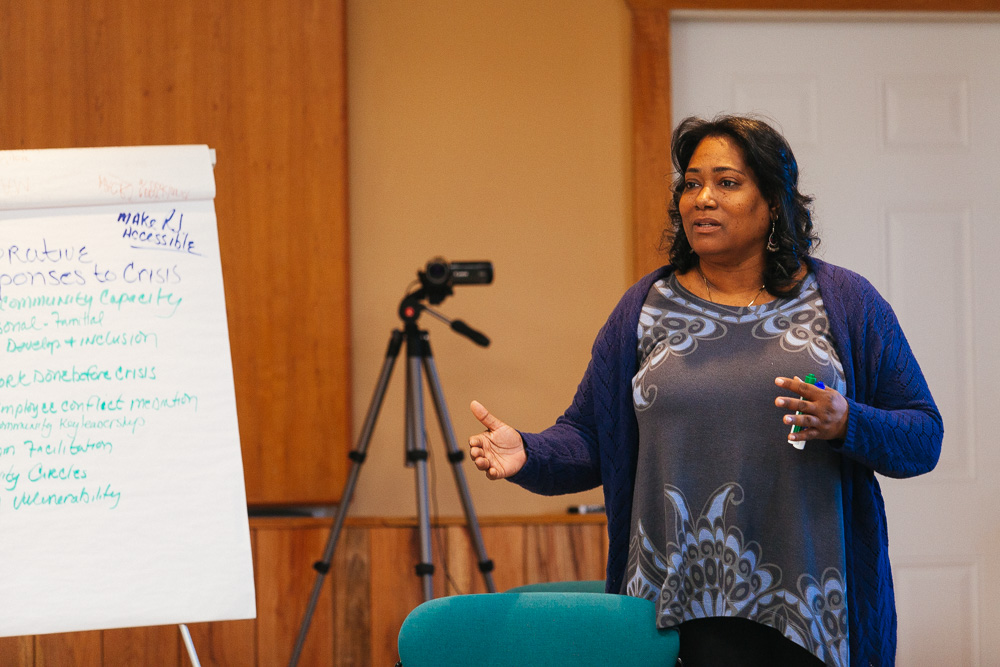This course has been postponed until fall 2017. Please contact Patience Kamau, Zehr Institute program director, at patience.kamau@emu.edu for more information.
The Zehr Institute for Restorative Justice announces a six-session course about police and community justice partnerships this summer. The course will be co-taught by Officer Vanessa Westley, a 25-year veteran with the Chicago Police Department, and Lt. Kurt Boshart, who recently retired after 28 years in the Harrisonburg (Va.) Police Department, where he led the department’s restorative justice program.
Institute co-directors Dr. Howard Zehr and Dr.Carl Stauffer will also join some sessions. The Zehr Institute is a program of the Center for Justice and Peacebuilding at Eastern Mennonite University.
The course will begin Wednesday, June 28, from 3-4:30 p.m. (EST) Eastern Standard Time and continue through five consecutive Wednesdays. The final class will be Aug. 2. Cost is $99 (no additional fees).
“Given issues around policing in this country, we are seeing increasing interest among both police departments and communities in restorative justice,” says Zehr. “Restorative justice offers a more positive way to approach wrongdoing, but also possibilities for transforming police/community relationships. This online course offers an opportunity to explore these possibilities.”
The course will be an introduction into restorative justice with an emphasis on its applications in law enforcement. Participants will explore innovative ways to incorporate restorative justice within an agency and in collaboration with their communities. Through presentations and interactive discussions, examples of implementation, including case studies in many police agencies throughout the United States, will be showcased.

The course builds upon a November 2016 restorative justice retreat co-hosted by the Zehr Institute and Harrisonburg Police Department in Virginia. Agencies from four states — California, Illinois, Massachusetts and Virginia — were represented by executive leadership, who have led or continued to lead implementation of restorative justice practices in their respective jurisdictions. Expert practitioners also attended, including Zehr. [Read the preview and coverage.]
Participants were in agreement that utilizing restorative justice principles—being proactive, using good communication skills, building relationships and social capital by empowering and including community members — called for a holistic culture shift from “the top down and back up,” from new recruits to administration, said Chief Joe Garza, Reedley (Ca.) Police Department. At the same time, they agreed that many police departments, and individual officers, are already doing this kind of outreach, though perhaps under a different name.
Westley is currently program manager for the “Bridging the Divide,” a joint program of the Chicago PD and the Metro YMCA. She is also special projects coordinator for the Chicago Alternative Policing Strategy Revitalization effort launched in 2013.
Through DePaul University’s Center for Urban Education, she leads the community engagement training program, and is also a restorative justice and “Art of Hosting” practitioner and trainer.
